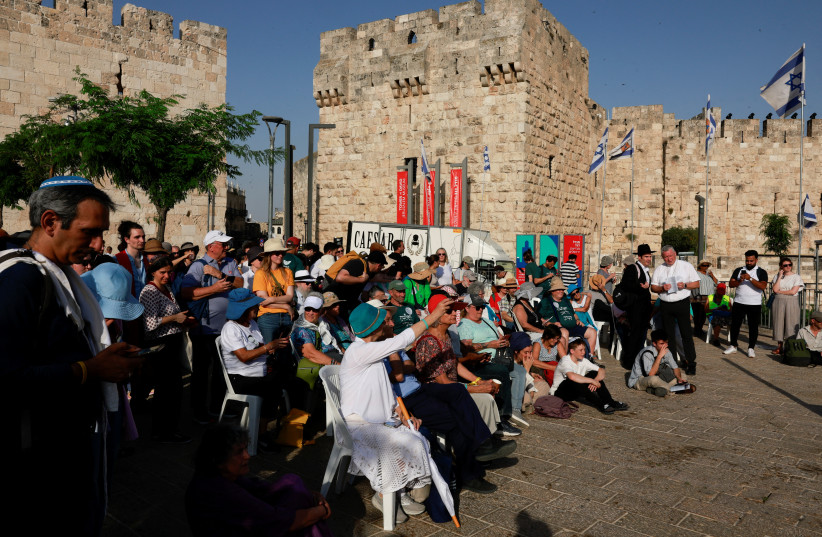While the Muslim population in Israel increased by 35,000 last year, its overall fertility rate continued a downward trend that began in 2001, the Central Bureau of Statistics reported ahead of the four-day Eid al-Adha holiday, which started last night.
Last year, the overall Israeli-Muslim population growth rate slowed to 2.0%, compared to 2.2% in 2022.
The fertility rate of Muslim women was 2.91 children, in contrast to a fertility rate of 3.03 children per woman in the Jewish population.
Muslims currently make up more than 18% of Israel’s population, estimated at 1.782 million, the bureau said. Jerusalem has the highest population of Muslims in the country, some 380,000, a third of the city’s residents.
Muslims started celebrating Eid al-Adha Saturday night, marking the Hajj pilgrimage season to Mecca. The holiday’s main event is to sacrifice a lamb and serve it at the meal or as a donation to the poor. The Israeli-Muslim population is young, with nearly a third below the age of 14. Those over 65 make up less than 5%.

Life expectancy for Israeli Muslims is 77 years for men and 81.8 years for women.
Education and employment
Regarding education, nearly three-quarters of those in Arab education were entitled to a matriculation certificate.
More than twice as many Muslim women than men continue to study for their bachelor’s degree within eight years of completing high school.
Nearly half of all Muslims over 15 participate in the workforce.
